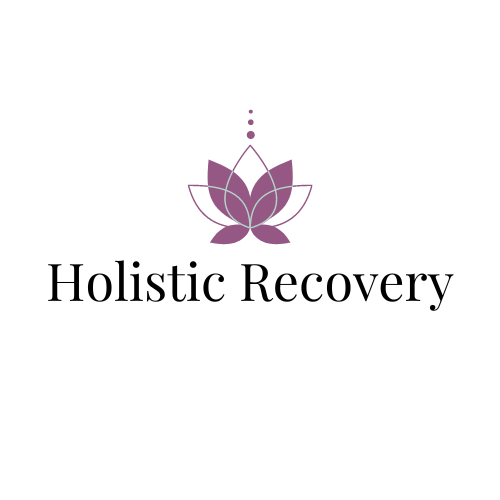
About Me
For over 20 years, I was trapped in the painful cycle of addiction. In 2017, I embarked on my recovery journey, facing challenges that were often more difficult than the addiction itself. One of the toughest battles was dealing with benzodiazepine-induced neurological dysfunction, a struggle that tested me in ways I never imagined. Yet, through it all, I finally found the inner peace I had always been searching for in my addiction.
My suffering became a catalyst for a profound spiritual awakening. Through mindfulness, meditation, and spiritual practice, I discovered that I didn't have to identify with the thoughts and emotions driving my addiction. I learned to cultivate presence and space, allowing me to step back from the turmoil within.
As my recovery progressed, I discovered somatic trauma therapy and uncovered the deep-seated trauma that had fueled my addiction for so long. This therapy helped me process the emotional trauma at the root of my addiction, enabling me to grow in my capacity to feel and heal those emotions, and to find safety and regulation within my body and nervous system.
The practices I’ve embraced didn’t just transform my recovery; they transformed my life on every level. My therapeutic and recovery approach is both gentle and profound. Implementing the techniques and practices that saved my life, I am dedicated to helping you disrupt old patterns of self-limiting beliefs and shine a light on the unconscious forces keeping you stuck. I can help you find freedom not just from addiction, but from the emotional disturbances and self-limiting beliefs that have been dictating your life.
In addition to my personal experiences, I’m a certified Embodied Processing (EP) practitioner, mindfulness teacher, and recovery coach. I also hold a BA (Hons) in Social Work, but my greatest qualification is surviving 20 years in the misery of addiction and nearly 10 years overcoming the torture of benzodiazepine-induced neurological dysfunction. My lived experience of suffering has fostered a deep compassion that will benefit you on your own journey of recovery and transformation.
I’ve had the privilege of training with Eckhart Tolle and Shamash Alidina (best-selling author of 10 mindfulness books). I’ve also attended retreats with Mooji (in my opinion one of the greatest spiritual masters alive today) and I'm a member of a Zen Buddhist sangha. These experiences have enriched my spiritual practice, which is central to my approach in helping others.
My mission is to change the way society perceives addiction by removing the stigma, shame, and blame that only fuel this dis-ease. Addiction is not a choice or a moral failing, but a response to deep pain. It’s a symptom of something far deeper than physical dependency. I aim to provide the compassion, support, and understanding that every person struggling with addiction deserves.

Why Mindfulness?
Mindfulness is a powerful tool that can transform the recovery journey. It’s more than just a buzzword; it’s a practice that teaches us to be fully present in the moment, without judgment. For those in addiction recovery, this can be life-changing. Here’s why:
Breaking the Cycle of Craving: Mindfulness helps you become aware of cravings and urges as they arise, allowing you to observe them without reacting impulsively. By staying present, you can recognize these triggers and choose healthier ways to cope, preventing relapse.
Reducing Stress and Anxiety: Addiction often thrives in a mind filled with stress and anxiety. Mindfulness teaches you to focus on the here and now, grounding you in the present moment. This reduces overwhelming thoughts and anxiety, allowing for a calmer, more centered recovery.
Healing Emotional Pain: In recovery, unresolved trauma and emotional pain can resurface. Mindfulness offers a safe space to observe and process these emotions without judgment. This practice fosters self-compassion, helping you to heal and grow from the inside out.
Building Resilience: Recovery is a journey with ups and downs. Mindfulness enhances your ability to navigate difficult moments with greater clarity and resilience. By staying grounded in the present, you’re better equipped to face challenges without falling back into destructive patterns.
Strengthening Your Recovery Mindset: Mindfulness encourages self-awareness and intentionality. It helps you recognize the habits, thoughts, and behaviors that serve your recovery and those that don’t. Over time, you’ll develop a deeper connection with your true self, fostering a sense of purpose and direction in your sober life.
By incorporating mindfulness into your recovery, you’ll not only find relief from the pressures of the past and worries of the future, but also discover a path to greater peace, emotional balance, and long-lasting healing. It’s a practice that brings you back to yourself—one mindful breath at a time.

What is Embodied Processing?
Embodied Processing (EP) is a holistic somatic therapy known for its distinctive approach to mental health and trauma treatment. Unlike traditional talk therapies, EP follows a "bottom-up" approach, recognizing the body’s essential role in resolving emotional and psychological issues.
The Science of Body-Brain Communication
Research in neurobiology, cognitive science, and psychology shows that about 80% of neurological signals travel from the body to the brain (bottom-up), significantly influencing our experiences and behaviors. In contrast, only 20% of these signals move from the brain to the body (top-down). Despite this, many psychological therapies tend to focus primarily on the mind, often overlooking the body’s vital role in processing emotions and trauma.
A Comprehensive Approach
EP integrates contemporary neuroscience with ancient healing traditions, drawing from various therapeutic methods such as Somatic Experiencing, Internal Family Systems Therapy, Kiloby Inquiries, polyvagal theory, Neurolinguistic Programming, hypnotherapy, and attachment theory. It emphasizes your "direct experience" through bodily sensations, encouraging you to move beyond the mind's interpretations. By directly addressing and processing deep-seated wounds, EP helps you break free from trauma cycles, release trapped energy, and reconnect with your true self, fostering balance and wholeness.
Guided by Expertise
EP is informed by the insights of leading figures in trauma healing, including Peter Levine, Bessel van der Kolk, Deb Dana, Pat Ogden, and Stephen Porges, grounding its methods in the pioneering work of these experts.
"Not why the addiction, but why the pain."
~ Gabor Mate



